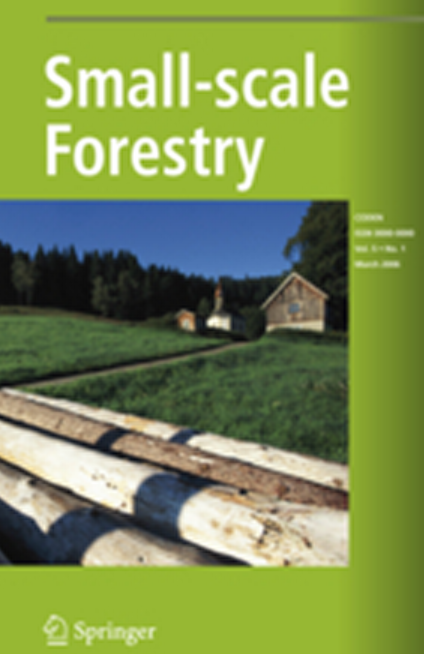From Farmers to Loggers: The Role of Shifting Cultivation Landscapes in Timber Production in Cameroon
External link
http://www.springerlink.com/content/n2p4722283767554/Summary
This article focuses on timber sourced from the agricultural areas in the shifting cultivation landscapes of the Central Region of Cameroon. Data about volumes marketed in urban centers, harvesting operations and on-farm timber management are used to discuss the ecological impact of small-scale logging and its sustainability in the long term. An opportunistic association exists between small scale logging and agricultural land uses, determined mostly by the abundance of valuable species in fallows and on cocoa farms, their easy accessibility and the low price of farmland timber. Farmers apply various strategies to the management of tree resources in fallows and cocoa agroforests, with most felling authorized in fallows and most trees preserved on the cocoa farms. With current agricultural expansion and intensification trends associated with small-scale logging, timber resources on rural land are at risk of depletion with direct consequences for domestic timber supply and the thousands of livelihoods it sustains. Marketing and regulatory changes are needed to encourage the integration of timber production in agricultural management systems.


 Twitter
Twitter Google+
Google+ Facebook
Facebook LinkedIn
LinkedIn Digg
Digg del.icio.us
del.icio.us StumbleUpon
StumbleUpon